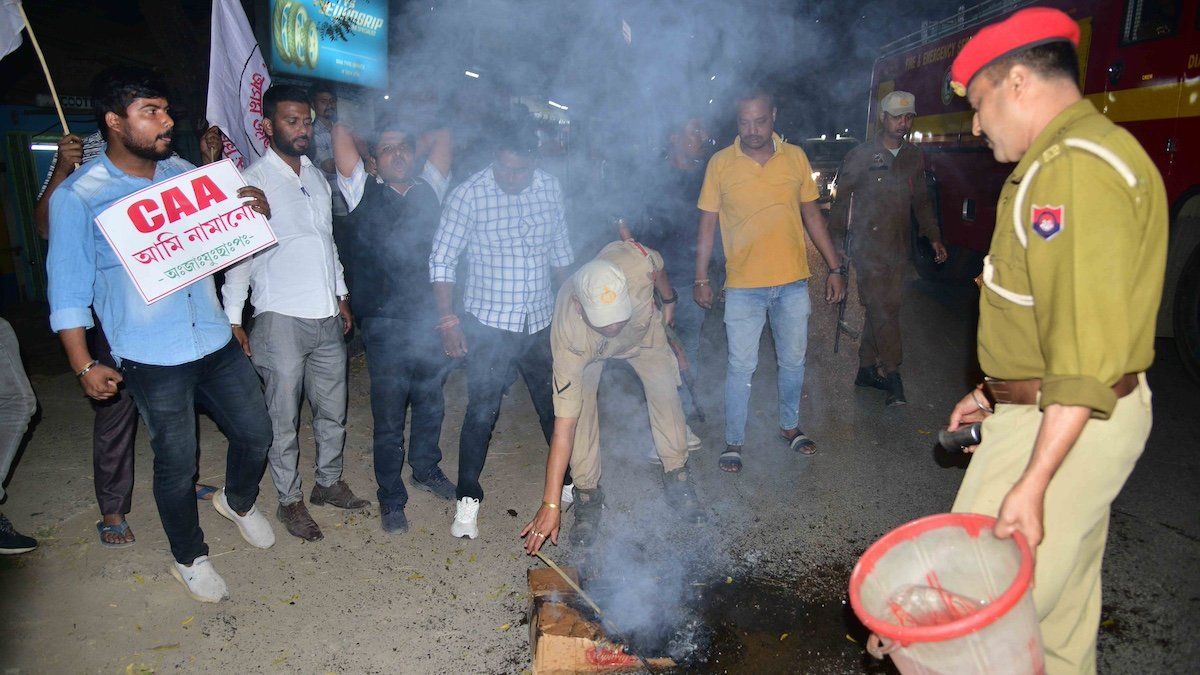The Indian government implemented a new citizenship law on Monday after over four years of delay that critics say may be used to discriminate against the country’s large Muslim minority.
What’s the new law? The amendment extends Indian citizenship to Hindus, Parsis, Sikhs, Buddhists, Jains, and Christians who moved to India from Pakistan, Afghanistan, or Bangladesh before Dec. 31, 2014.
Supporters say the law is meant to help members of those faiths escape persecution in their countries of origin, but critics worry it is one step of a two-part plan. In combination with a proposed national register of citizens, they say this law could be used to render Muslims stateless. When the law was first passed in 2019, it triggered months of protests and riots that left dozens dead and hundreds injured, which is why the government waited years to implement it.
Why now? Prime Minister Narendra Modi has never looked stronger, and he’s aiming to fire up Hindu nationalist sentiment ahead of elections this spring. Modi is expected to win comfortably, but he’s aiming to run up his party’s vote count as high as possible and solidify its long-term prospects.
To that end, earlier this year he opened a controversial Hindu temple on the grounds of a former mosque in a massive symbolic victory, which had been the site of violent confrontation for over a century. And to woo less spiritually motivated voters, Modi announced he was spending $15 billion on infrastructure in the south and east, where he hopes to make inroads into opposition strongholds.


















